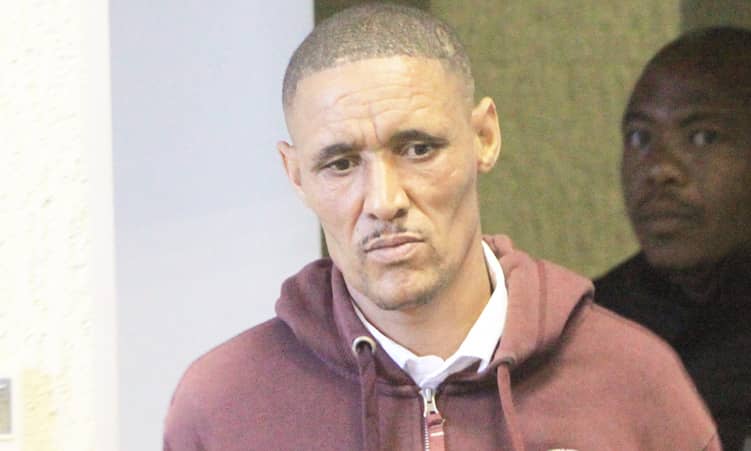Critics remain sceptical about the global lender’s role * Hugues Honore W ASHINGTON – With its prescriptions spurned by troubled economies in recent years, the International Monetary Fund (IMF) now appears to be angling for a more active role in fighting the global financial meltdown.
The multilateral institution, which holds its annual meetings with the World Bank beginning tomorrow in Washington, says it has a role in preventing systemic crises by encouraging countries to adopt healthy economic policies. The current credit squeeze – the worst global financial crisis in seven decades – has spurred the idea that the 64-year-old IMF would be well-positioned to bring order to the worldwide financial system.The 185-nation institution has seen its coffers drained in recent years as countries that once relied on IMF rescue packages later spurned its conditional loans in favour of easier credit in a booming global economy.Critics say the IMF’s lending policies impose harsh conditions that harm the borrowing nations.In the Asian financial crisis of the late 1990s, for example, the IMF lent over US$38 billion in two years to countries on the condition they adopt strict austerity measures.”The financial crisis shows us that it would be necessary, in the future, to expand the IMF’s responsibilities,” Laurent Fabius, a former French Socialist prime minister, said last month.”In particular it would be extremely useful if it could play the role of an alarm system over future financial disturbances.”The IMF’s managing director, Dominique Strauss-Kahn – a former French finance minister – is the leading proponent of such a reform.Brazilian President Luiz Inacio Lula da Silva, an avowed socialiast, Spanish Prime Minister Jose Luis Rodriguez Zapatero and French President Nicolas Sarkozy “are calling for or will call for a reform”, Strauss-Kahn said last month.”Finance should be controlled.We are ready to do it if someone gives us the mandate,” he said.The general assembly this weekend will present the opportunity to discuss this mandate with IMF governors and the finance ministers of the 185 member countries.The IMF has tallied the cost of the financial crisis that erupted in July 2007, saying this week it estimated that US declared losses would rise to US$1.4 trillion.Six months earlier, it had put the cost at US$945 billion.The IMF has made recommendations on how to combat the crisis.In its twice-yearly Global Financial Stability Report, released Tuesday, it called on countries to “address three issues: the capital of the banks, the troubled assets, and the funding”.The financial sector itself appears to lean towards an evolving IMF role.On October 2, the Institute of International Finance (IIF), an association of major global banks, called for the consideration of “some fundamental reforms to the IMF lending structures and to the IMF facilities”.”They are designed for temporary balance of payments financing, which was a smart way to structure this organisation 60 years ago,” said IIF managing director Charles Dallara.”Now one could perhaps think exceptionally about ways that these facilities could be brought there, on the credit stress.”IMF critics, however, remained sceptical.”The IMF’s failure to provide advance warning of most of the major financial crises of the last 15 years and its record of suggesting inappropriate remedies after the fact, raise serious questions about its ability to perform this function,” said Dean Baker and Mark Weisbrot of the Center for Economic and Policy Research, a Washington think-tank.- Nampa-AFPThe current credit squeeze – the worst global financial crisis in seven decades – has spurred the idea that the 64-year-old IMF would be well-positioned to bring order to the worldwide financial system.The 185-nation institution has seen its coffers drained in recent years as countries that once relied on IMF rescue packages later spurned its conditional loans in favour of easier credit in a booming global economy.Critics say the IMF’s lending policies impose harsh conditions that harm the borrowing nations.In the Asian financial crisis of the late 1990s, for example, the IMF lent over US$38 billion in two years to countries on the condition they adopt strict austerity measures.”The financial crisis shows us that it would be necessary, in the future, to expand the IMF’s responsibilities,” Laurent Fabius, a former French Socialist prime minister, said last month.”In particular it would be extremely useful if it could play the role of an alarm system over future financial disturbances.”The IMF’s managing director, Dominique Strauss-Kahn – a former French finance minister – is the leading proponent of such a reform.Brazilian President Luiz Inacio Lula da Silva, an avowed socialiast, Spanish Prime Minister Jose Luis Rodriguez Zapatero and French President Nicolas Sarkozy “are calling for or will call for a reform”, Strauss-Kahn said last month.”Finance should be controlled.We are ready to do it if someone gives us the mandate,” he said.The general assembly this weekend will present the opportunity to discuss this mandate with IMF governors and the finance ministers of the 185 member countries.The IMF has tallied the cost of the financial crisis that erupted in July 2007, saying this week it estimated that US declared losses would rise to US$1.4 trillion.Six months earlier, it had put the cost at US$945 billion.The IMF has made recommendations on how to combat the crisis.In its twice-yearly Global Financial Stability Report, released Tuesday, it called on countries to “address three issues: the capital of the banks, the troubled assets, and the funding”.The financial sector itself appears to lean towards an evolving IMF role.On October 2, the Institute of International Finance (IIF), an association of major global banks, called for the consideration of “some fundamental reforms to the IMF lending structures and to the IMF facilities”.”They are designed for temporary balance of payments financing, which was a smart way to structure this organisation 60 years ago,” said IIF managing director Charles Dallara.”Now one could perhaps think exceptionally about ways that these facilities could be brought there, on the credit stress.”IMF critics, however, remained sceptical.”The IMF’s failure to provide advance warning of most of the major financial crises of the last 15 years and its record of suggesting inappropriate remedies after the fact, raise serious questions about its ability to perform this function,” said Dean Baker and Mark Weisbrot of the Center for Economic and Policy Research, a Washington think-tank.- Nampa-AFP
Stay informed with The Namibian – your source for credible journalism. Get in-depth reporting and opinions for
only N$85 a month. Invest in journalism, invest in democracy –
Subscribe Now!






